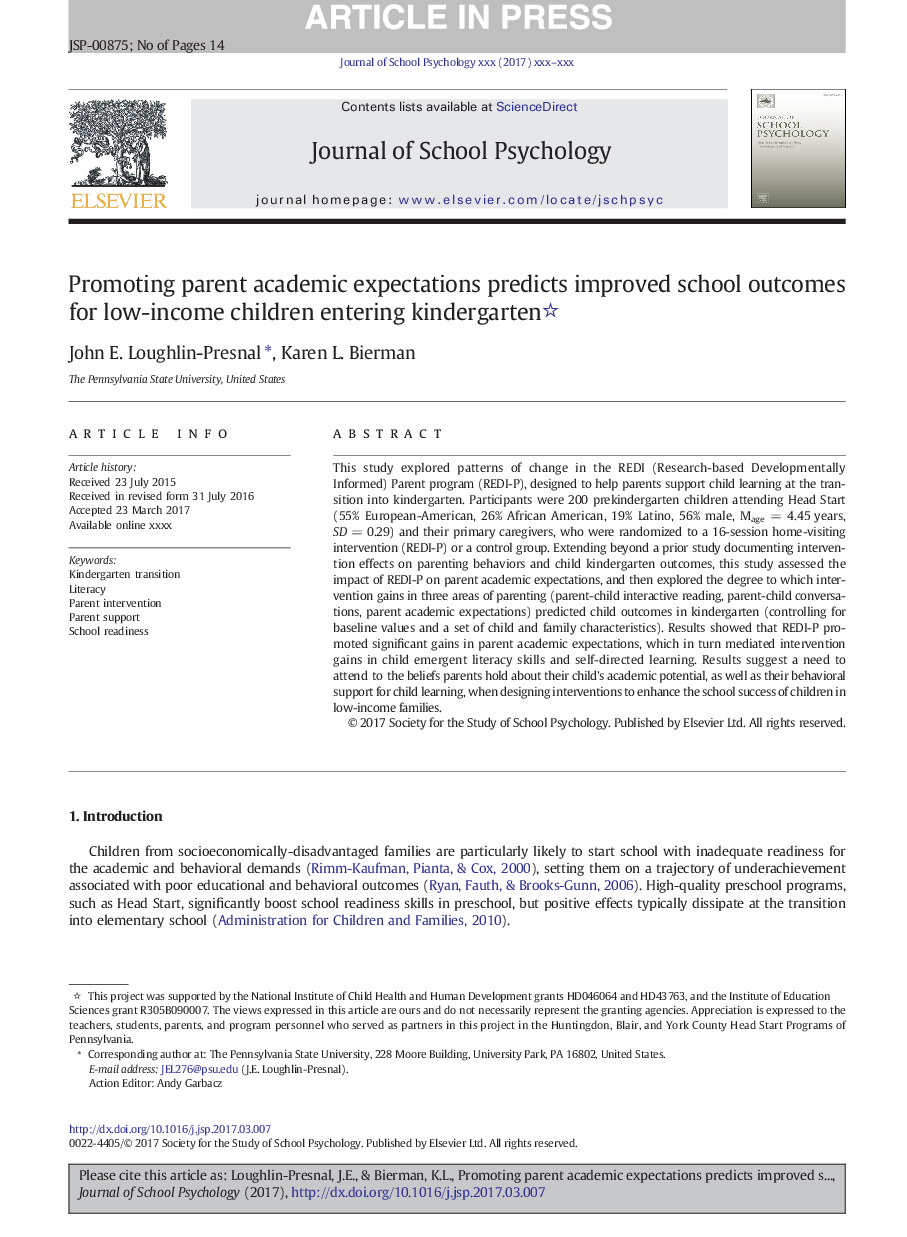ترجمه فارسی عنوان مقاله
ترویج انتظارات والدین تحصیلی، پیشرفت های تحصیلی مدرسه را برای کودکان کم درآمد در مهد کودک پیش بینی می کند
عنوان انگلیسی
Promoting parent academic expectations predicts improved school outcomes for low-income children entering kindergarten
| کد مقاله | سال انتشار | تعداد صفحات مقاله انگلیسی |
|---|---|---|
| 155960 | 2017 | 14 صفحه PDF |
منبع

Publisher : Elsevier - Science Direct (الزویر - ساینس دایرکت)
Journal : Journal of School Psychology, Volume 62, June 2017, Pages 67-80
ترجمه کلمات کلیدی
انتقال کودکستان، سوادآموزی مداخله والدین، پشتیبانی والدین، آمادگی مدارس،
کلمات کلیدی انگلیسی
Kindergarten transition; Literacy; Parent intervention; Parent support; School readiness;

